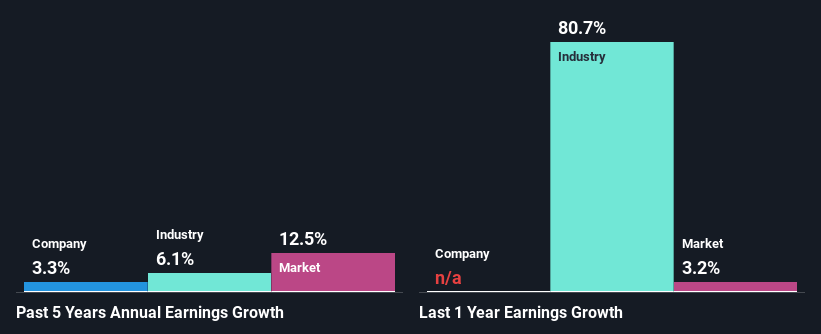Wasco Berhad's (KLSE:WASCO) Stock Is Going Strong: Have Financials A Role To Play?
Most readers would already be aware that Wasco Berhad's (KLSE:WASCO) stock increased significantly by 24% over the past three months. We wonder if and what role the company's financials play in that price change as a company's long-term fundamentals usually dictate market outcomes. Specifically, we decided to study Wasco Berhad's ROE in this article.
ROE or return on equity is a useful tool to assess how effectively a company can generate returns on the investment it received from its shareholders. Simply put, it is used to assess the profitability of a company in relation to its equity capital.
View our latest analysis for Wasco Berhad
How Do You Calculate Return On Equity?
The formula for ROE is:
Return on Equity = Net Profit (from continuing operations) ÷ Shareholders' Equity
So, based on the above formula, the ROE for Wasco Berhad is:
18% = RM150m ÷ RM820m (Based on the trailing twelve months to December 2023).
The 'return' is the income the business earned over the last year. That means that for every MYR1 worth of shareholders' equity, the company generated MYR0.18 in profit.
What Is The Relationship Between ROE And Earnings Growth?
So far, we've learned that ROE is a measure of a company's profitability. Based on how much of its profits the company chooses to reinvest or "retain", we are then able to evaluate a company's future ability to generate profits. Assuming everything else remains unchanged, the higher the ROE and profit retention, the higher the growth rate of a company compared to companies that don't necessarily bear these characteristics.
Wasco Berhad's Earnings Growth And 18% ROE
At first glance, Wasco Berhad seems to have a decent ROE. Especially when compared to the industry average of 9.1% the company's ROE looks pretty impressive. Yet, Wasco Berhad has posted measly growth of 3.3% over the past five years. This is generally not the case as when a company has a high rate of return it should usually also have a high earnings growth rate. We reckon that a low growth, when returns are quite high could be the result of certain circumstances like low earnings retention or poor allocation of capital.
We then compared Wasco Berhad's net income growth with the industry and found that the company's growth figure is lower than the average industry growth rate of 6.1% in the same 5-year period, which is a bit concerning.
The basis for attaching value to a company is, to a great extent, tied to its earnings growth. It’s important for an investor to know whether the market has priced in the company's expected earnings growth (or decline). Doing so will help them establish if the stock's future looks promising or ominous. Is WASCO fairly valued? This infographic on the company's intrinsic value has everything you need to know.
Is Wasco Berhad Using Its Retained Earnings Effectively?
Wasco Berhad doesn't pay any regular dividends, which means that it is retaining all of its earnings. This doesn't explain the low earnings growth number that we discussed above. So there could be some other explanation in that regard. For instance, the company's business may be deteriorating.
Conclusion
On the whole, we do feel that Wasco Berhad has some positive attributes. However, given the high ROE and high profit retention, we would expect the company to be delivering strong earnings growth, but that isn't the case here. This suggests that there might be some external threat to the business, that's hampering its growth. Having said that, the company's earnings growth is expected to slow down, as forecasted in the current analyst estimates. Are these analysts expectations based on the broad expectations for the industry, or on the company's fundamentals? Click here to be taken to our analyst's forecasts page for the company.
Have feedback on this article? Concerned about the content? Get in touch with us directly. Alternatively, email editorial-team (at) simplywallst.com.
This article by Simply Wall St is general in nature. We provide commentary based on historical data and analyst forecasts only using an unbiased methodology and our articles are not intended to be financial advice. It does not constitute a recommendation to buy or sell any stock, and does not take account of your objectives, or your financial situation. We aim to bring you long-term focused analysis driven by fundamental data. Note that our analysis may not factor in the latest price-sensitive company announcements or qualitative material. Simply Wall St has no position in any stocks mentioned.

